In today's hectic world, Matcha tea has attracted many tea enthusiasts for its exotic taste and many health benefits. Did you know? This timeless drink was created accidentally? Yes, you heard it right! During a harsh winter in Japan, tea farmers desperately sheltered their young tea plants with straw and reed structures.
Later, the farmers hand-picked and processed the young buds, resulting in a richer, creamier powder that eventually became the beloved Matcha. This accident marked the beginning of Matcha's extraordinary journey, transforming it from a mere tea to a cherished cultural symbol.
In this blog, we'll learn more about this tea, its cultural significance, production, and delectable taste that has attracted tea enthusiasts worldwide.
History & Cultural Significance
Originating from the Tang Dynasty in China, Matcha has a history in Japan. Dating back to the 12th century, some Japanese monks brought the tea plants back home from their trips to China. It didn’t gain popularity until the 16th century when it was used in the Japanese tea ritual, or "chanoyu." During this period, Japanese tea masters formulated a unique method of preparing and serving Matcha tea.
As time passed, Matcha became a cherished companion in Japanese rituals, gracing ceremonies like weddings, funerals, and special events. It has earned the esteemed "cultural treasure" title in Japan. But Matcha isn't confined to rituals alone; it is also used in Japanese culinary arts, crafting delights like Matcha-flavoured ice cream and mochi.
How Is Matcha Made?
Cultivating Matcha is like a work of art. First, the tea plants are kept in direct sunlight, letting the leaves grow with extra chlorophyll. Then, the leaves are gently steamed to lock in their bright green colour. After that, they are air-dried to keep them fresh. The most important part is grinding them with stones, turning them into the fine Matcha powder that makes it unique. This traditional way doesn't just keep the green colour but also boosts the unique flavour.
-
Ritual Of Preparation
Preparing Matcha is a mindful process that involves using specific tools, such as a bamboo whisk called a "Chasen," a ceramic bowl known as a "chawan," and a bamboo scoop referred to as a "Chashaku."
The first step is to filter the Matcha powder to produce a smooth, lump-free brew. Then, a small amount of hot water (not boiling) is carefully mixed into the Matcha powder in the bowl. The mixture is vigorously stirred with the bamboo whisk in a back-and-forth 'W' or 'M' motion. This vigorous whisking produces a frothy and silky texture, revealing the Matcha's subtle taste and appealing scent. The thorough and precise procedure of making Matcha improves the whole tea-drinking experience.
How Does Matcha Taste?
Matcha has a unique umami flavour that's a perfect mix of sweetness and a touch of bitterness. It creates a full-bodied and smooth flavour that makes each sip delightful. The distinct umami flavour comes from the shaded growth of the tea leaves, giving them an extra boost of nutrients. The careful processing, including steaming and stone-grinding, plays a big role, too. This attention to detail brings out the rich and smooth taste in every cup of Matcha. Ultimately, the taste feels like a thank-you note for the careful work behind growing and making this special green drink.
Types Of Matcha
Matcha comes in various grades, each with its qualities and ideal uses.
-
Ceremonial Grade Matcha:
Ceremonial Grade Matcha stands at the top, known for its unmatched quality and rarity. Sourced from the youngest tea leaves, carefully shaded before harvesting, it commands a price premium approximately 5-10 times higher than other varieties. Best reserved for traditional Japanese tea ceremonies, Ceremonial Grade Matcha's smooth texture and exquisite flavour may lose some of their original essence when incorporated into cooking or mixed with dairy due to the high temperature involved.
-
Premium Matcha:
Despite not being Ceremonial Grade, Premium Grade Matcha still maintains its prestige as a valuable green tea powder. Crafted from young leaves, it distinguishes itself from the Ceremonial Grade with less shading during growth. Although slightly less vibrant in colour, Premium Grade Matcha is still an expensive and cherished option. Primarily used for making hot tea, it also finds its place in other Matcha-based beverages.
-
Culinary Matcha
Derived from older tea leaves, Culinary Grade Matcha's colour may lack the vividness of high-grade Matcha, leaning towards a more yellow and electric green hue. It is less sweet than other grades and tastes slightly bitter. It can be used as a culinary ally in baked goods, desserts, and other dishes. Cooking with this Matcha requires thoughtful pairing with other ingredients to complement its unique flavour without overwhelming it.
Health Benefits
Beyond its exceptional taste, Matcha offers many health benefits.
- Antioxidant-Rich: Matcha is loaded with antioxidants, which act as defenders against free radicals in the body, promoting overall health.
- Chlorophyll Boost: The green goodness in Matcha, chlorophyll, supports natural detoxification, providing a gentle cleanse for the body.
- Amino Acid Rich: A good amount of amino acids contribute to Matcha's unique taste and health benefits, making it a wholesome choice.
- Natural Energy Boost: Unlike coffee, Matcha provides a natural and sustained energy lift without the jitters, making it an excellent choice for those seeking a balanced energy source.
- Metabolism Support: Matcha gives your metabolism a gentle push, assisting your body in functioning more efficiently.
- Overall Well-being: With its combination of antioxidants, chlorophyll, and amino acids, Matcha contributes to your overall well-being, making it a smart and health-conscious option for tea enthusiasts.
Conclusion
In conclusion, Matcha is an experience that you should not miss. When you sip on this vibrant brew, you are not merely enjoying tea – you are stepping into a legacy passed down through generations that radiates calm and focused mindfulness. However, to have actual experience, it is important that your Matcha is 100% pure.
For tea enthusiasts seeking the best Matcha tea in India, Chymey is a premium tea provider, offering a diverse range of Matcha teas, including Ceremonial, Imperial, and Culinary Grades. Our Matcha’s undergo a meticulous process to ensure purity and richness. Additionally, we provide an assortment of green teas, such as organic pyramid tea bags and herbal blends. You can explore our website for further details on our Matcha selection and other tea varieties.


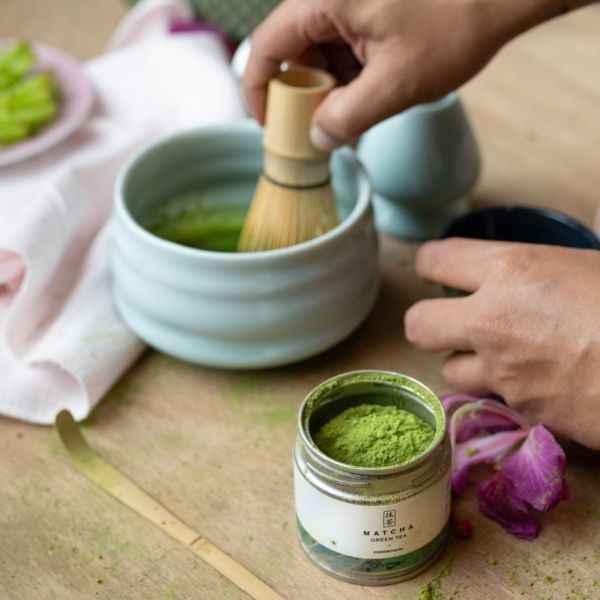

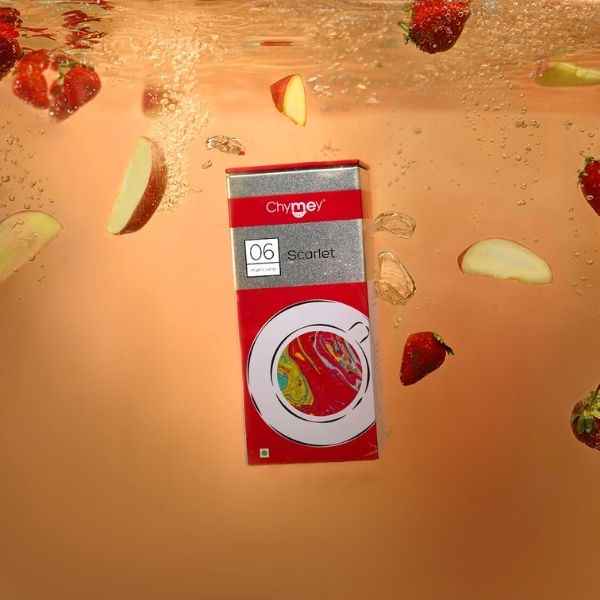
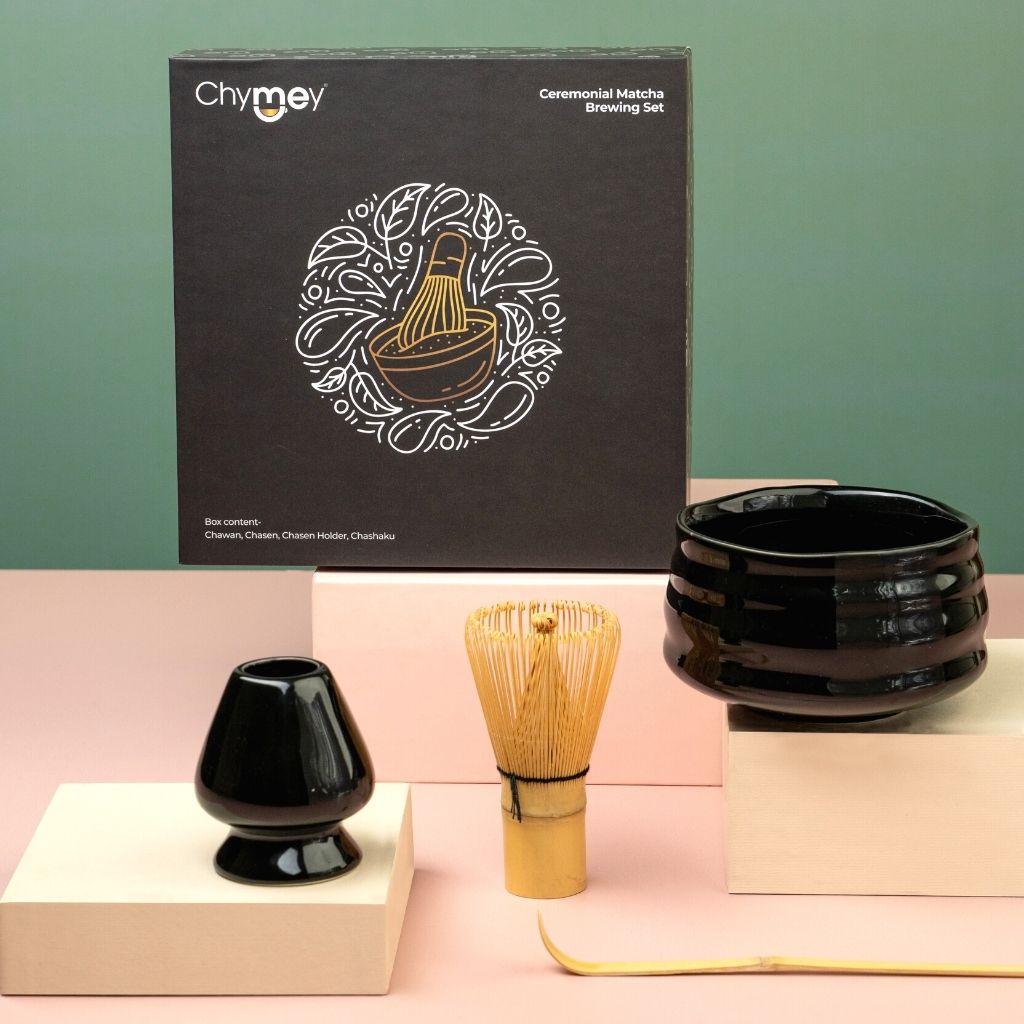
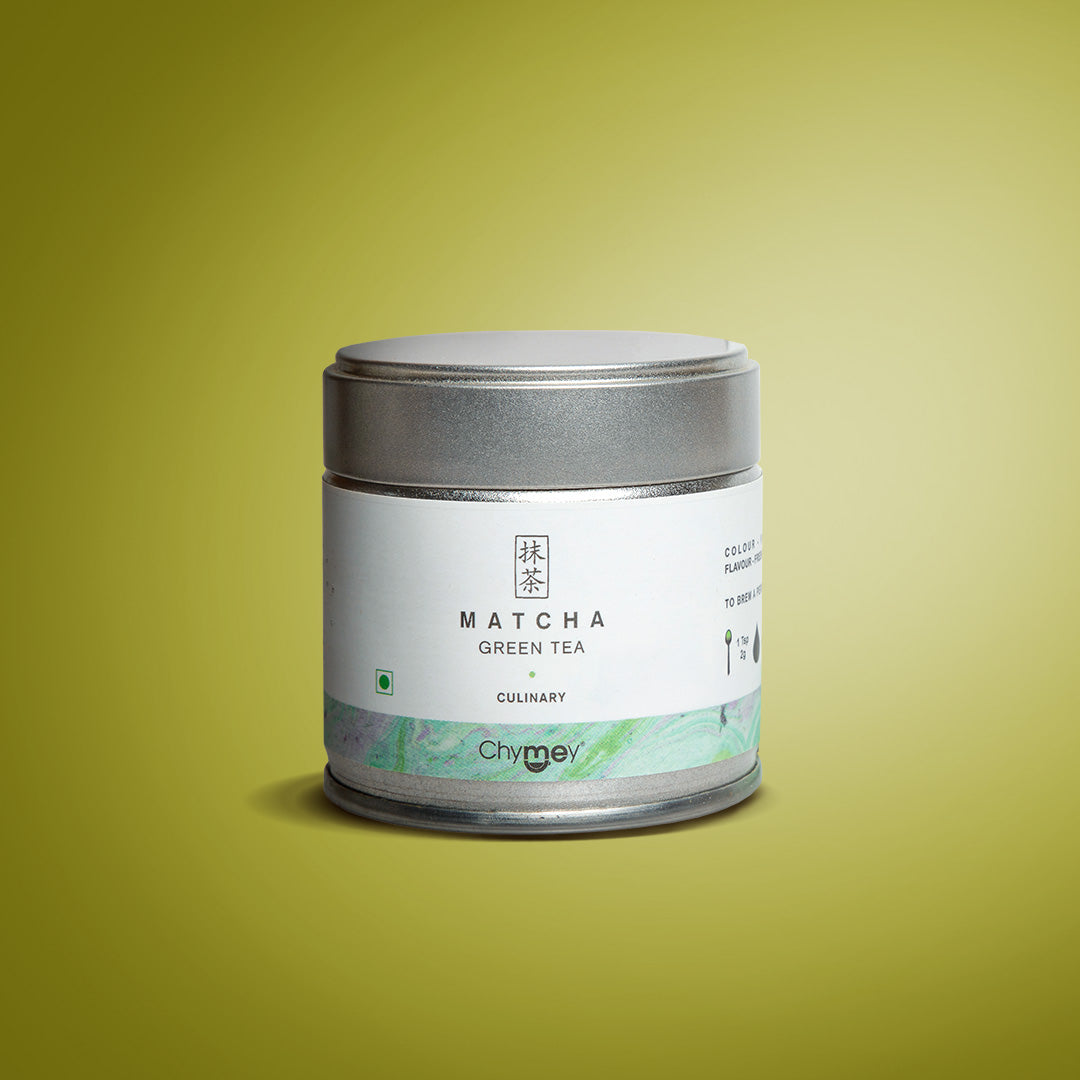
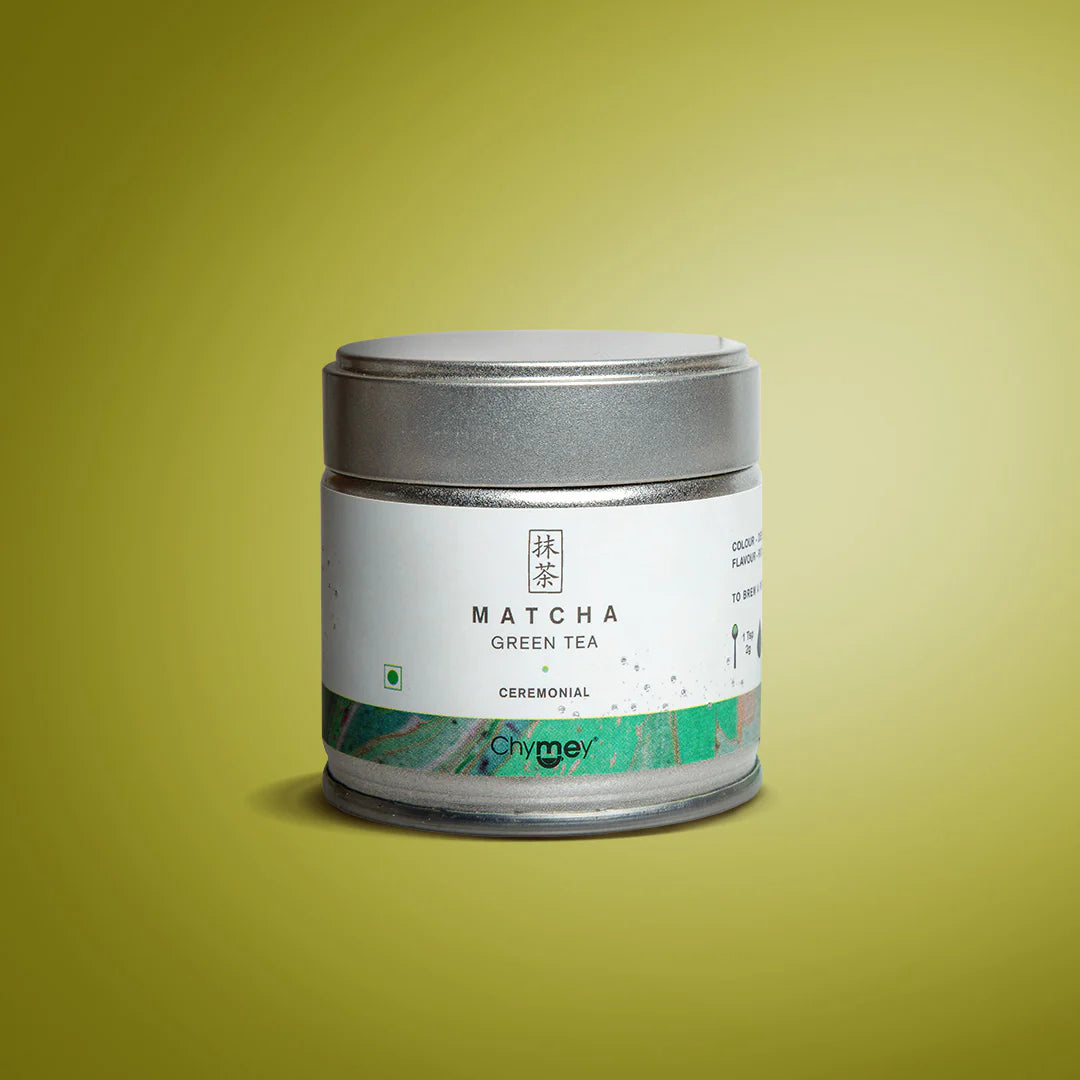
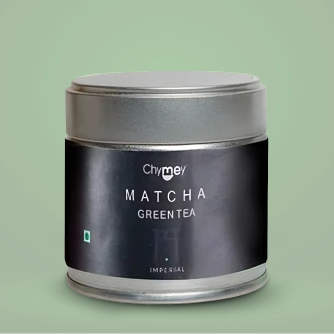

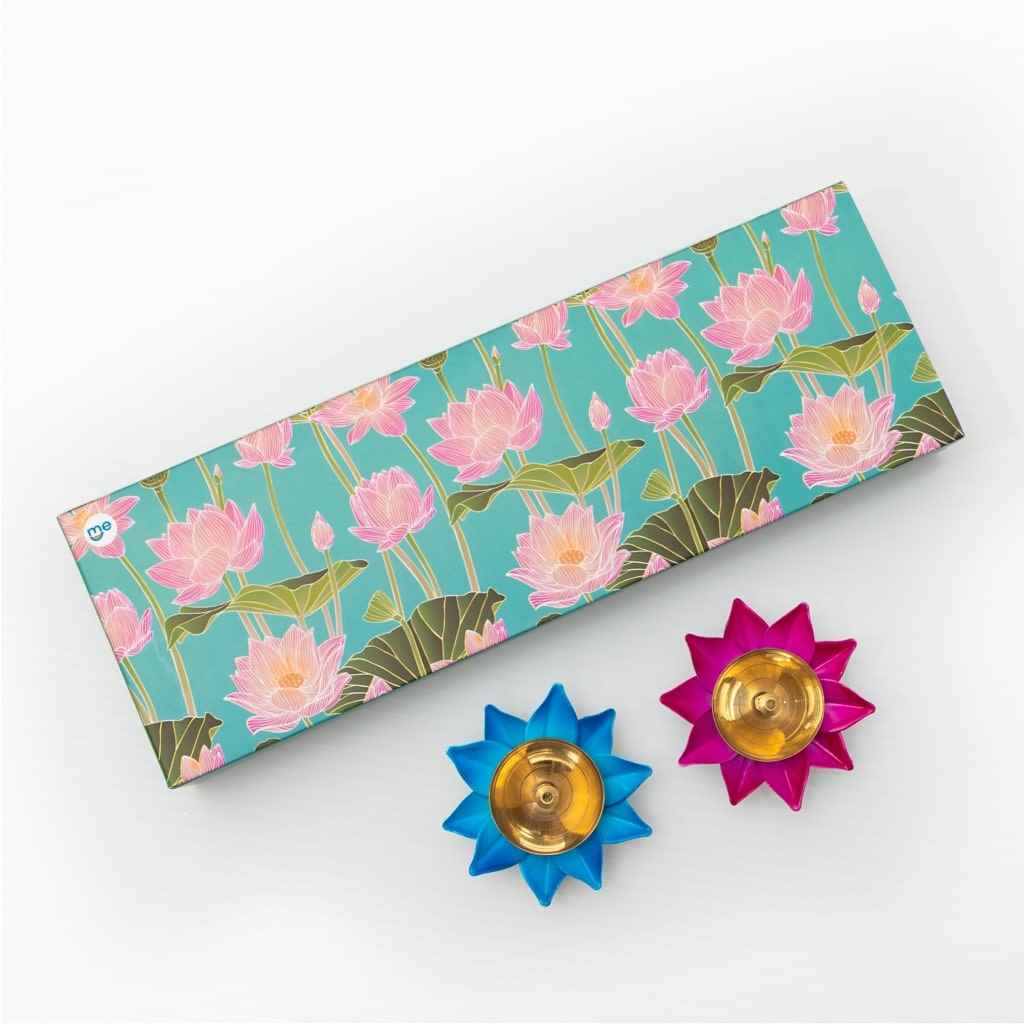




Leave a comment (all fields required)